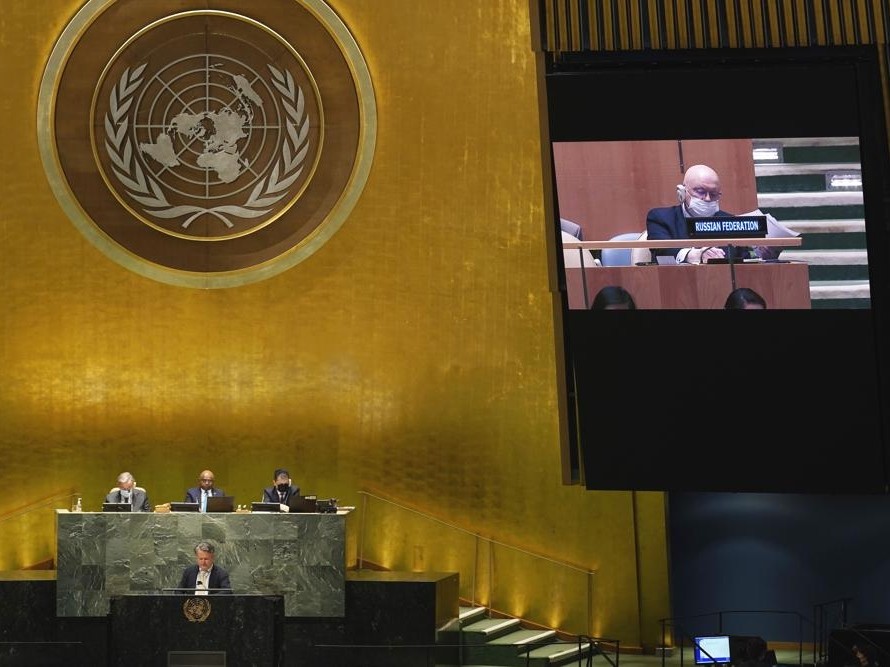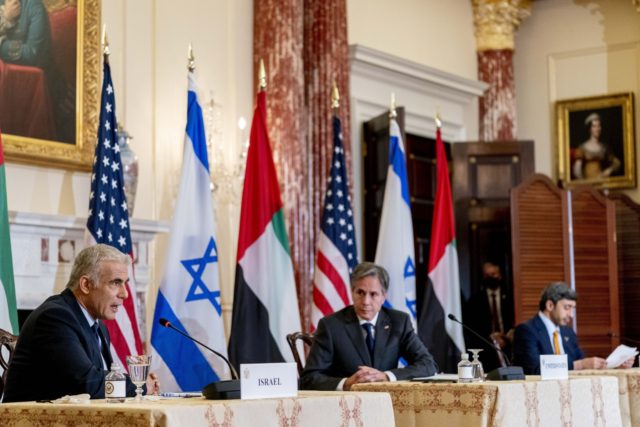The United Arab Emirate’s decision to abstain from a U.S.-led resolution at the U.N. Security Council condemning Russia’s invasion of Ukraine was the result of frustrations over the U.S.’ response to a recent attack on Abu Dhabi weeks earlier, the Axios website reported citing Emirati, U.S. and Israeli sources.
The UAE, which currently holds the U.N. Security Council presidency, on Friday abstained from the U.S.-Albanian resolution condemning the Russian invasion.
U.S. forces in January helped thwart an unprecedented Houthi drone and missile attack on Abu Dhabi in January, which killed three people. However, the U.S. did not accepted the UAE’s request to redesignate the Houthis as terrorists.
President Joe Biden overturned the Trump administration’s decision to make the designation less than a month after assuming office, saying it hindered humanitarian assistance to the Yemeni people. The move emboldened the Iran-backed Houthi rebels which have since attacked Saudi Arabia and Abu Dhabi multiple times.

Russia’s U.N. Ambassador Vasily Nebenzya appears on a television screen as Ukraine’s UN Ambassador Ukraine’s Ambassador Sergiy Kyslytsya addresses the emergency session of the United Nations General Assembly, Monday, Feb. 28, 2022. (AP Photo/Seth Wenig)
According to the report, despite the Biden administration’s quick response to the attack — with U.S. troops firing Patriot interceptors at the misiles — its lack of wider support regarding the terrorist designation made the Emiratis feeling “abandoned.” The Emiratis also had expectations that the U.S. would allow for more intelligence sharing as well as better targeting capabilities to prevent further attacks in Yemen, the report said.
Axios reports a number of ways the UAE snubbed the U.S. in the ensuing weeks:
-
When CENTCOM commander Gen. Frank McKenzie visited Abu Dhabi on Feb. 7, Crown Prince Mohammed Bin Zayed (MBZ) refused to meet with him. That snub was intended to signal disappointment with the fact that it took McKenzie 22 days since the attack to visit, according to a U.S. source with direct knowledge.
-
A senior Biden administration official said McKenzie couldn’t visit sooner because he was overseeing and advising the president on the operation that killed ISIS leader Abu Ibrahim al-Hashimi al-Qurayshi. The official says U.S. officials had been in contact with their UAE counterparts several times per day after the attack.
-
MBZ did agree to see White House Middle East coordinator Brett McGurk a week later in Abu Dhabi, but used the meeting to air his frustration at the U.S. The senior U.S. official said the meeting was nonetheless “constructive” in terms of future cooperation over Yemen.
The sources cited by Axios also added that the U.S.’ response to Russia over its invasion of Ukraine was much stronger and faster than when they were attacked.

COMMENTS
Please let us know if you're having issues with commenting.